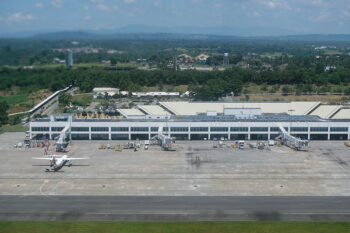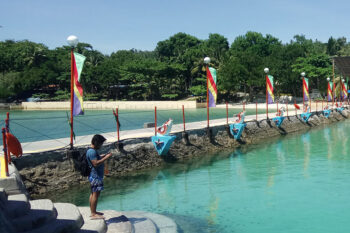CAGAYAN DE ORO CITY (MindaNews/28 December) — Now over a century since Dr. Jose P. Rizal was executed at Bagong Bayan in Luneta on December 30, 1998, let us be refreshed on one of the ways he championed our honor and integrity.
In the latter half of the 19th Century a debate broke out on the nature and disposition of our forefathers, the natives, whom the colonial rulers called “indios” and disparaged as backward and lazy.
On one side were the Filipino intellectuals of the time; on the other, the Spanish colonial authorities. The issue: “The Indolence of the Filipino.”
As was his wont, Dr. Rizal confronted the issue in an essay of the same title, befitting his role as an articulator of his generation’s nationalist sentiments.
*****
Curiously, he addressed the issue not so much to deny the charge of indolence, as many vigorously did, but sought to turn the table against the Spaniards by confirming it.
In effect he said, “Of course Filipinos are indolent! How can they be otherwise? With all the abuse and mistreatment they have been subjected to, any people would become indolent!”
He clarified the word “indolence” as meaning sluggish or lazy as a result of illness; he was a doctor and he knew whereof he spoke. H explained how the illness develops; how it debilitates one subjected to repeated indignity and abuse; and how it ultimately weakens the will, making the victim appear indolent or lazy. But in fact, he is merely ill. His behavior is caused by the ravages of illness.
To place the issue in context, he recounted how before the Spaniards came and imposed colonial rule Filipinos were among the most creative and productive of Asians, commercially active and adventurous, producing wares that were much in demand abroad.
*****
He traced how Ferdinand Magellan and Pigaffeta witnessed and chronicled the prolific craftsmanship and output of Filipinos—describing how ships from India, Siam (Thailand), and other places would sail in to be loaded in Cebu with gold, silver, and other goods from the islands.
He cited Spanish, Dutch, Portuguese, and other chroniclers who marveled at the masterful Filipino shipbuilders, miners and jewelers, weavers of silk and cotton and pina textile, farmers and fisherfolks, craftsmen and warriors, even distillers in their many barangays.
He quoted Morga and other witnesses who described the paraus and vintas and large vessels that plied Philippine seas, some so large they had a hundred rowers on each side. And he referred to the great alliances Filipinos had with Indonesia and outlying peoples, helping them quell revolt or liberate their islands from pirates. (Our memory of this was refreshed only a year ago when the issue of Sabah as a possession of the Sultan of Sulu surfaced—a gift of territory for helping quell rebellion there ages ago.)
We owe Rizal for portraying the true nature and character of Filipinos in their original state—when they were free and unspoiled by alien strictures and demands, a people with boundless industry, creativity, and resourcefulness.
*****
In his inimitable style, he told of how colonial abuse damaged the character of our simple folk, how the Spanish Regime dehumanized trusting people even as it appropriated the latter’s produce and services as “tribute,” treating them as little more than slaves or beasts of burden.
It was a scathing indictment of colonial exploitation—of imperious masters pushing the limits of citizen patience, of seemingly petty habits like taking long siestas while “indio” domestic workers fanned them, of their control of all facets of life, and of their levying all sorts of taxes.
Centuries of that drained the Filipino’s self-esteem and confidence, Rizal wrote. Ultimately, it discouraged him from doing or producing anything that fed his master’s covetousness or intensify his sense of entitlement to anything an indio produced.
“Who would work, let alone work hard,” he wrote, “knowing that at harvest time his crop would only fatten the executioner?” They also had to render compulsory labor to maintain roads and other public works. And as if these were not bad enough, one had to respond to demands of spoiled señores and señoras, señoritos and señoritas, who reveled in having muchachos and muchachas at their beck and call.
*****
No less devastating to the Filipino’s psyche was the narrow-mindedness of friars who urged him to devote more time to spiritual rather than “material” pursuits. Simple people were told to eschew “material” undertakings such as working their mines, engaging in commerce, operating their looms—and instead look to heaven to save their souls!
Rizal would lament: “The friars were preparing Filipinos for death as their only consolation in life!” Dispirited and weakened, indolence ailed them. Colonial maltreatment turned them sluggish and made them regress to a backward state.
But what Rizal didn’t point out in this essay was that while indignity weakened the spirit of the Filipino of the time, it laid the premise for his ultimate awakening and defiance against colonial rule.
Manny is former UNESCO regional director for Asia-Pacific; secretary-general, Southeast Asia Publishers Association; director, development academy of Philippines; member, Philippine Mission to the UN; vice chair, Local Government Academy; member, Cory Govt’s Peace Panel; awardee, PPI-UNICEF outstanding columnist. He is president/national convenor, Gising Barangay Movement Inc. valdehuesa@gmail.com







